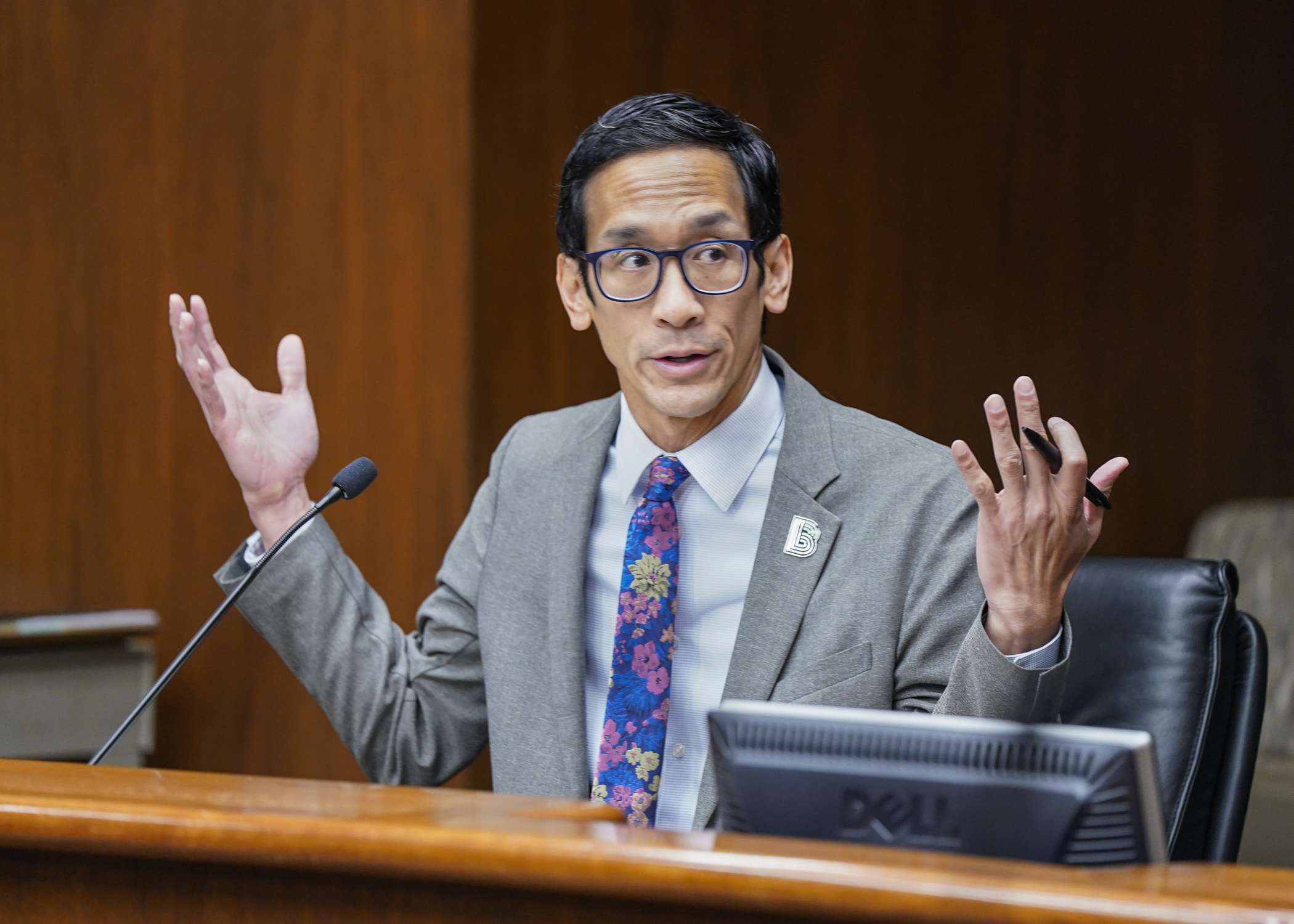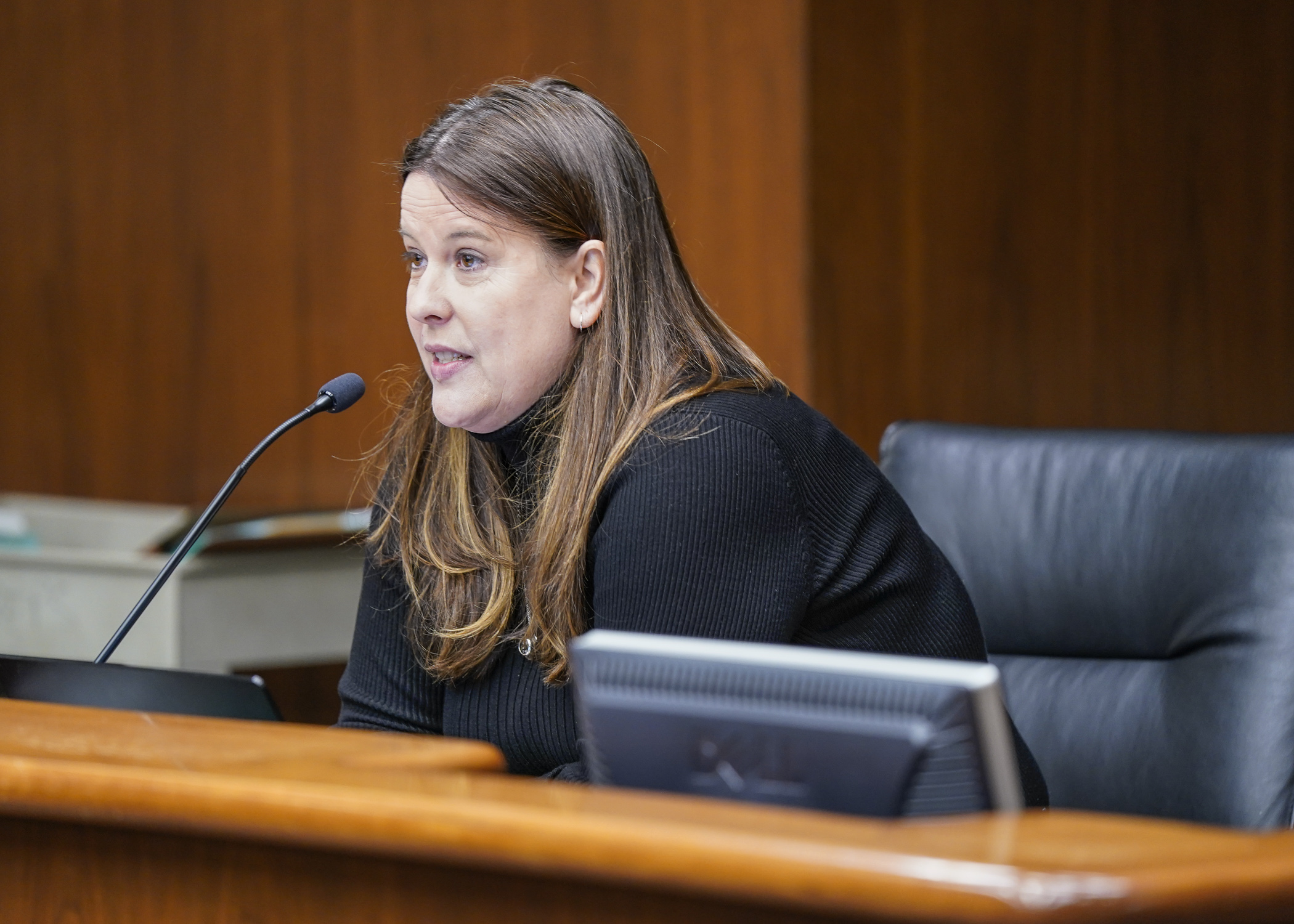Omnibus workforce finance bill gets first hearing, mixed reviews

The omnibus workforce development finance bill will solve the workforce shortage across the state.
Nobody said anything that definitive when the House Workforce Development Finance and Policy Committee heard the bill Wednesday, but committee members and public testifiers alike said the $362.34 million spending bill — $331.56 million from the General Fund — would make good progress toward meeting that perhaps unreachable goal.
The omnibus bill would provide a $227 million General Fund increase over base in the 2024-25 biennium to the Department of Employment and Economic Development for grants to train workers, make loans to entrepreneurs or businesses, and even subsidize car loans to help low-income people get to work.
The committee, chaired by Rep. Jay Xiong (DFL-St. Paul), went through a delete-all amendment to HF2233, heard testimony, and laid the bill over. Committee discussion is scheduled Friday morning, at which time amendments are to be considered, and a final vote taken.
With more than 75 organizations or programs slated to get $204.79 million of the $362.34 million of total funding, the best way to grasp the scope of the bill and to see all the funded items and the amounts they would receive is to view the spreadsheet.
 Jessica Webster, staff attorney for Mid-Minnesota Legal Aid, urges the House Workforce Development Finance and Policy Committee to include Unemployment Insurance reforms in the committee’s omnibus bill. (Photo by Catherine Davis)
Jessica Webster, staff attorney for Mid-Minnesota Legal Aid, urges the House Workforce Development Finance and Policy Committee to include Unemployment Insurance reforms in the committee’s omnibus bill. (Photo by Catherine Davis)But to get a flavor of the funded programs, consider the testimony of Pat Sukhum, CEO of Big Brothers Big Sisters Twin Cities. The nonprofit organization would receive $1 million to provide job-seeking skills to disadvantaged youth ages 12-21.
Sukhum’s testimony encapsulated the tone of many of the others who came before the committee: thanking the committee for the money, thanking the sponsor of the underlying bill requesting the money, and describing how the money would benefit their programs.
“This funding boosts the preparation of our future workforce,” he said. It would get more kids interested in post-secondary training, help them gain college access, and kickstart career explorations.
“We’re not just talking about jobs, we’re talking about fulfillment, finding dreams,” he said.
However, Jessica Webster, a staff attorney at Mid-Minnesota Legal Aid, expressed disappointment the proposal does not include HF784, which would drastically reduce or eliminate penalties when a person unintentionally receives an overpayment of unemployment benefits.
A fine of 40% of an unintentional overpayment of received benefits, plus charging 12% interest, means Minnesota imposes one of the harshest penalties in the nation, she said. “Minnesota is charging predatory rates to people who make mistakes in the unemployment insurance system.”
Rep. Dave Baker (R-Willmar) expressed frustration that several bill provisions were not previously heard by the committee. “Why are we passing millions of dollars to organizations that we did not hear from?”
He pointed to one example. The “Drive for 5 Workforce Fund,” a $15 million request coming from Gov. Tim Walz’s workforce budget bill that would fund programs to prepare workers to enter the five most critical work sectors: caring professions, education, manufacturing, technology, and trades.
Xiong said the governor’s provisions arrived late from the his staff and that they would present the details when the committee meets Friday morning.
That explanation did not sit well with Baker.
“I can’t support a bill that I don’t feel we’ve really had a chance to vet,” he said.
Appropriations
Funding for divisions and programs in the Department of Employment and Economic Development include:
- $204.8 million for Employment and Training/Workforce Development;
- $84.7 million for Vocational Rehabilitation Services;
- $25 million for General Support Services;
- $25 million for Business and Community Development; and
- $22.9 million for State Services for the Blind.
***
What’s in the bill?
The following are selected bills that have been incorporated in part or in whole into the omnibus workforce development finance bill:
Related Articles
Search Session Daily
Advanced Search OptionsPriority Dailies
Speaker Emerita Melissa Hortman, husband killed in attack
By HPIS Staff House Speaker Emerita Melissa Hortman (DFL-Brooklyn Park) and her husband, Mark, were fatally shot in their home early Saturday morning.
Gov. Tim Walz announced the news dur...
House Speaker Emerita Melissa Hortman (DFL-Brooklyn Park) and her husband, Mark, were fatally shot in their home early Saturday morning.
Gov. Tim Walz announced the news dur...
Lawmakers deliver budget bills to governor's desk in one-day special session
By Mike Cook About that talk of needing all 21 hours left in a legislative day to complete a special session?
House members were more than up to the challenge Monday. Beginning at 10 a.m...
About that talk of needing all 21 hours left in a legislative day to complete a special session?
House members were more than up to the challenge Monday. Beginning at 10 a.m...